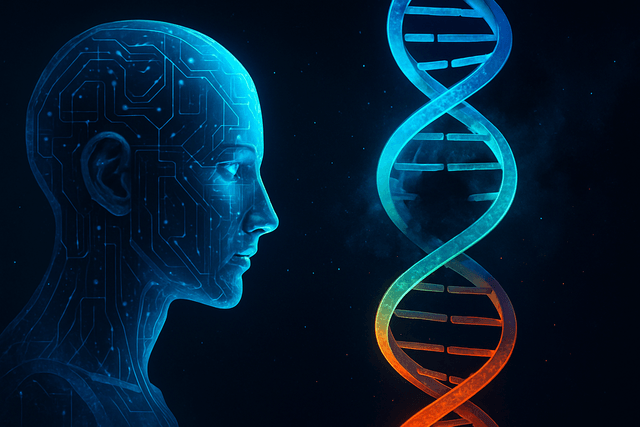Google DeepMind has developed a powerful new AI system that could revolutionize our understanding of human genetics by deciphering what scientists once called DNA's "dark matter."
AlphaGenome, released on June 25, 2025, tackles one of biology's greatest mysteries: how the 98% of our genome that doesn't directly code for proteins influences gene activity and disease. While previous models could only analyze small DNA segments or focused on single tasks, AlphaGenome processes sequences up to one million base-pairs long and predicts thousands of molecular properties at single-letter resolution.
"For the first time, we have a single model that unifies long-range context, base-level precision and state-of-the-art performance across a whole spectrum of genomic tasks," said Dr. Caleb Lareau of Memorial Sloan Kettering Cancer Center, who had early access to the technology.
The model's architecture combines convolutional neural networks to detect local sequence patterns with transformers to model long-range interactions. In rigorous testing, AlphaGenome outperformed specialized and generalist models in 46 out of 50 benchmark tests, including 24 of 26 evaluations of variant effect prediction.
One of AlphaGenome's most significant capabilities is predicting RNA splicing—a process where errors can cause rare genetic diseases like spinal muscular atrophy and some forms of cystic fibrosis. The model can also identify how mutations in non-coding regions activate cancer-related genes, as demonstrated in its analysis of T-cell acute lymphoblastic leukemia.
While still in its early stages and not validated for clinical use, AlphaGenome is now available via API for non-commercial research. Scientists believe it could accelerate medical research by helping identify disease-causing mutations, guide synthetic DNA design, and deepen our fundamental understanding of genome function.
"This tool will provide a crucial piece of the puzzle, allowing us to make better connections to understand diseases like cancer," said Professor Marc Mansour of University College London. DeepMind plans to continue improving the model and gathering feedback to address current limitations, such as difficulty predicting interactions between DNA regions more than 100,000 letters apart.

